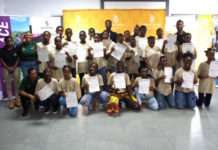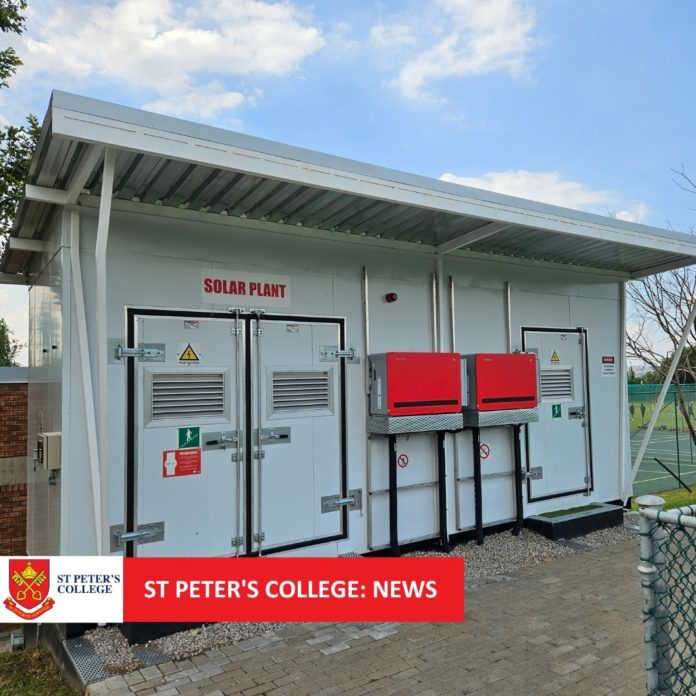The future of green energy in education looks promising, with a growing number of educational institutions adopting sustainable energy practices. Solar power, one such alternative energy source, is recognised as more than just an investment in clean energy and a way to reduce the carbon footprint, it’s an investment in the future of our children.
“At St Peter’s College, our decision to invest in solar energy goes way beyond mere functionality. Our state-of-the-art solar and battery storage facility with a total capacity of 200KW PV, marks an important step on our journey towards sustainability and environmental responsibility,” says Rui Morais, Headmaster at St Peter’s College.
“When schools like ours turn to solar power, they’re not just flipping a switch; they’re igniting a spark of empowerment that can transform the way they operate and educate. By harnessing the sun’s rays, we can generate our own electricity, giving us a reliable and sustainable power source. For us, this investment represents our commitment to providing a safe and uninterrupted learning environment for our students and future generations as well as demonstrates our dedication to reducing our impact on the environment,” Morais explains.
Transitioning to solar energy means schools, like St Peter’s College, can spend less on utility bills and more on what really matters: educational programmes and improving school facilities and infrastructure.
Schools literally light the way towards a more sustainable, environmentally conscious future when they embrace solar energy, helping to empower students to become the leaders and innovators of tomorrow.
“It reduces the carbon footprint of the school as well as the wider community, and helps protect the environment,” Morais goes on to say.
But the impact of this switch doesn’t stop there. Solar panels can also be a teaching tool, sparking conversations about environmental stewardship, climate change, and the importance of renewable energy. Through hands-on experiences with solar panels and renewable energy systems, students gain a deeper understanding of climate change, environmental conservation, and the importance of transitioning towards renewable energy sources.
“We’re excited about this opportunity for students interested in science, engineering and technology as this provides hands-on learning for them. In time, the real-time energy production and savings statistics will offer our learners a visual representation of the impact of renewable energy and provide them with an experiential learning platform that goes beyond textbooks,” remarks Morais.
Additionally, students will be able to conduct energy audits, monitor energy consumption, and even help maintain solar systems. These experiences provide students with hands-on lessons that make learning more engaging and impactful.
Having solar power at school helps empower students to take action and make a difference. From starting solar clubs to leading sustainability projects, students can become change-makers both within their schools and out in the world. Solar power isn’t just lighting up classrooms; it’s lighting a fire in the hearts of students everywhere.
By incorporating solar technology into the science, technology, engineering, and maths (STEM) curriculum, educators can use it as a tangible example to explain complex scientific and mathematical concepts. For example, physics classes can discuss the photovoltaic effect, how sunlight is converted into electricity. Maths students can calculate energy production and savings based on panel orientation and local weather patterns.
“We’re also on the way to becoming water independent, with phase 1 of the installation of our domestic water tank storage system almost complete, providing our campus with 300 000 litre water backup supply, for occasions when our water supply is interrupted.”
“At the end of the day, the transition to solar power and with phase 1 of our backup water storage system in the pipeline, so to speak, we’re confident these investments will not only prevent our campus from being negatively affected by water or power issues,but serve to cultivate a generation of students who are environmentally aware and actively contribute to environmental stewardship in the future,” concludes Morais.
For more information, visit https://www.stpeters.co.za.












